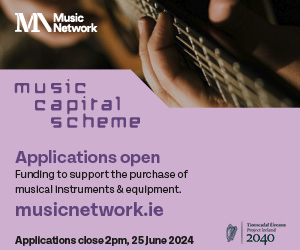Editorial: Small Country, Think Big
The third annual festival of the Institute of Ideas in London – The Battle of Ideas – took place in October. There was a music element this year, which I attended, comprising four separate discussions on music education, the ubiquity of music, the universality of music, and music and social change. All potentially interesting, but what was most striking was the limited terms of reference. In such a culturally diverse city as London (leaving aside the wealth of musical traditions all over England, Wales, Scotland and Northern Ireland), it was strange in the twenty-first century to hear a serious discussion on the status of music in British society that was so tied to Western classical music of the seventeenth to nineteenth centuries.
This self-imposed straitjacket stifled the debate terribly. Few new ideas were heard and the discussions tended to rotate platitudes and cliches. A music education initiative in the UK called Music Manifesto appears to be challenging this musical homogeny and thus it is under serious attack. Some speakers couldn’t fathom how you could have a national music education intiative which did not require scales and hours of practice.
Although such discussion is not unimaginable in Ireland today, I would suggest that is less likely, and certainly would not go unchallenged. While Britain’s cultural infrastructure is hugely impressive, our small size as a country can actually be a great advantage in accommodating and encouraging a diverse musical life. It allows us to be flexible, to change fast and move quickly, it forces us to confront and adapt to ideas from other musics, and it can, on occasion, mean good ideas travel fast. In building a progressive musical life for the future, we should take more advantage of that. The Crash Ensemble certainly has, and admirably so.
Published on 1 November 2007
Toner Quinn is Editor of the Journal of Music. His new book, What Ireland Can Teach the World About Music, is available here. Toner will be giving a lecture exploring some of the ideas in the book on Saturday 11 May 2024 at 3pm at Farmleigh House in Dublin. For booking, visit https://bit.ly/3x2yCL8.







